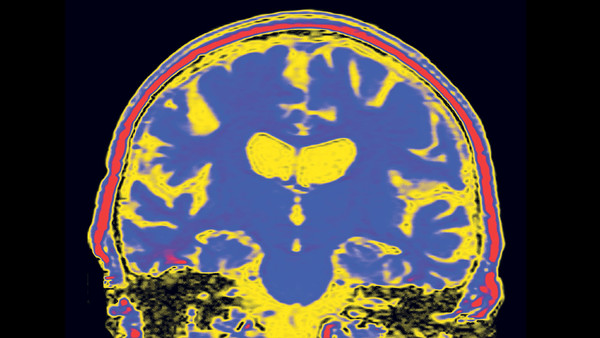IMPLANT CAN ENCODE HUMAN MEMORIES
Computer algorithm created to encode human memories

Researchers in the US have developed an implant to help a disabled brain encode memories, giving new hope to Alzheimer’s sufferers and wounded soldiers who cannot remember the recent past.
The prosthetic, developed at the University of Southern California and Wake Forest Baptist Medical Centre in a decade-long collaboration, includes a small array of electrodes implanted into the brain.
The key to the research is a computer algorithm that mimics the electrical signalling used by the brain to translate short-term into permanent memories.
This makes it possible to bypass a damaged or diseased region, even though there is no way of “reading” a memory — decoding its content or meaning from its electrical signal.
“It’s like being able to translate from Spanish to French without being able to understand either language,” said Ted Berger of USC, the project leader.
The prosthesis has performed well in tests on rats and monkeys. Now it is being evaluated in human brains, the team told the international conference of the IEEE Engineering in Medicine and Biology Society in Milan.
The project is funded by Darpa, the US Defence Advanced Research Projects Agency, which is interested in new ways to help soldiers recover from memory loss.
But the researchers say findings could eventually help to treat neurodegenerative diseases, including Alzheimer’s, by enabling signals to bypass damaged circuitry in the hippocampus, the brain’s memory centre.
Sensory inputs to the brain — sights, sounds, smells or feelings — create complex electrical signals, known as spike trains, which travel through the hippocampus. This neural process involves re-encoding the signals several times, so they have a quite different electrical signature by the time they are ready for long-term storage.
Damage that interferes with this translation may prevent the formation of long-term memories while old ones survive — which is why some people with brain damage or disease recall events from long ago but not from the recent past.
The translation algorithm, derived first from animal experiments, has been extended into humans by studying nine people with epilepsy who had electrodes implanted in the hippocampus to treat chronic seizures.
The researchers read the electrical input and output signals created in the patients’ brains as they conducted simple tasks, such as remembering the position of different shapes on a computer screen.
These results were used to refine the algorithm until it could predict with 90 per cent accuracy how the signals would be translated.
“Being able to predict neural signals with the USC model suggests that it can be used to design a device to support or replace the function of a damaged part of the brain,” said Robert Hampson of Wake Forest.
The next step will be to send the translated signal back into the brain of a patient with hippocampal damage, in the hope that this will bypass the trouble spot and form an accurate long-term memory.
The project at USC and Wake Forest is a vivid example of the progress being made in neurotechnology by scientists around the world.
Researchers elsewhere are implanting devices that enable people who are paralysed to carry out simple movements with robotic arms or even their own limbs. But no one else is using computers to manipulate memory signals directly in the human brain.
Tags:
Replies to This Discussion
"Destroying the New World Order"
THANK YOU FOR SUPPORTING THE SITE!
Latest Activity
- Top News
- ·
- Everything
Prince - Cinnamon Girl (Official Music Video)
Hooray for Russian TV
True Story
Hooray for Russian TV
It Wasn't Fauci: How the Deep State Really Played Trump (mini-doc)
Governor Signs Climate Engineering Ban Legislation Into Law
© 2024 Created by truth.
Powered by
![]()